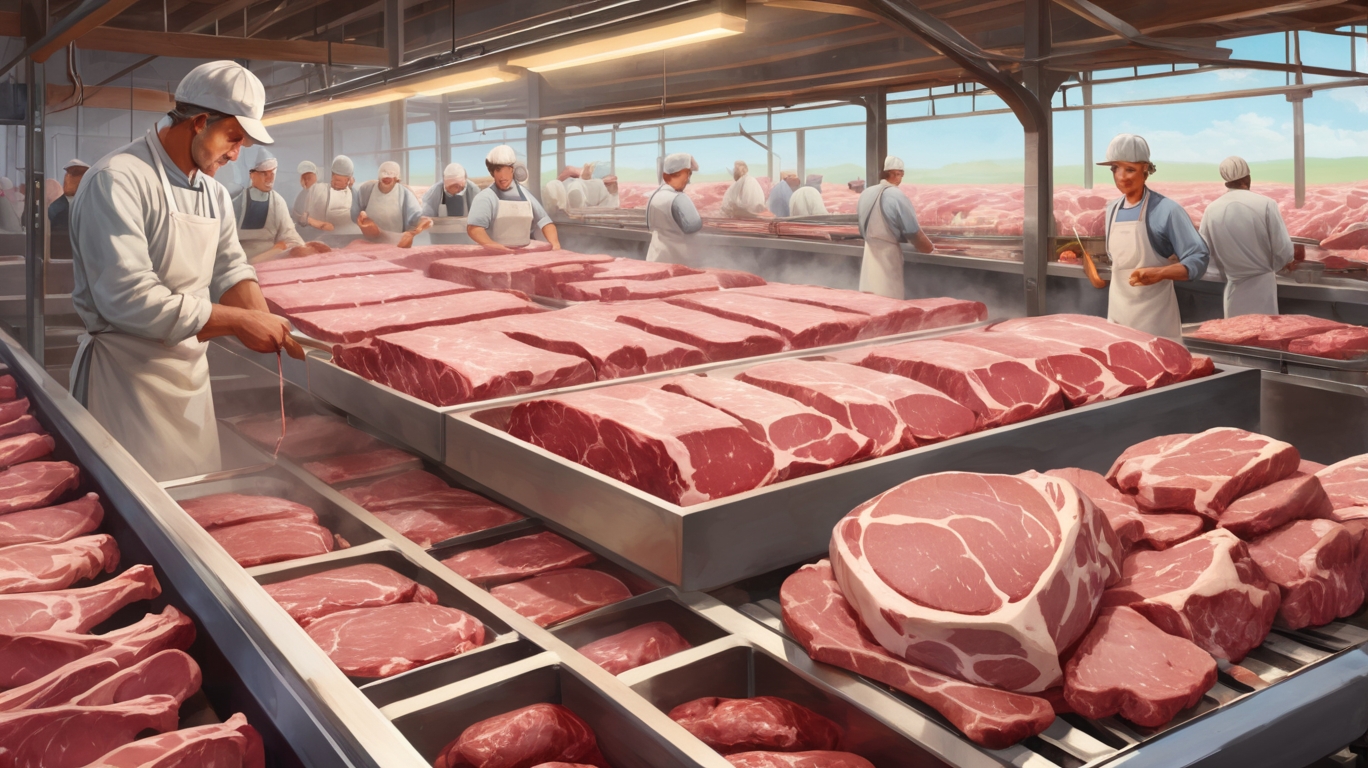Organic Meat Production: Is It Worth It?
In recent years, organic meat has gained popularity as consumers become more conscious of their food choices. From environmental concerns to animal welfare, many people are willing to pay a premium for meat labeled as “organic.” But is organic meat production truly worth the extra cost and effort? Let’s explore the benefits, challenges, and considerations to help you decide.

What Makes Meat Organic?
Organic meat comes from animals raised under strict agricultural standards. These typically include:
- No synthetic hormones or antibiotics – Animals are not given growth hormones, and antibiotics are used only when medically necessary.
- Organic feed – Livestock are fed organic, non-GMO feed free from synthetic pesticides and fertilizers.
- Access to the outdoors – Animals must have space to roam, graze, and engage in natural behaviors.
- Humane treatment – Organic farming emphasizes animal welfare, including stress reduction and proper living conditions.
The Benefits of Organic Meat Production
1. Better for Animal Welfare
Organic farming prioritizes humane treatment, allowing animals to live in more natural environments. This contrasts with conventional factory farming, where overcrowding and restrictive conditions are common.
2. Fewer Chemicals and Additives
Since organic meat prohibits synthetic hormones and unnecessary antibiotics, consumers avoid potential residues in their food. This can be particularly important for those concerned about antibiotic resistance and long-term health effects.
3. Environmental Sustainability
Organic farming tends to be more environmentally friendly. Practices like rotational grazing improve soil health, reduce erosion, and lower greenhouse gas emissions compared to intensive conventional farming.
4. Potential Health Benefits
Some studies suggest that organic meat may have higher levels of beneficial nutrients, such as omega-3 fatty acids, due to the animals’ natural diets. However, research is ongoing, and the differences may not be significant for everyone.
Challenges and Considerations
1. Higher Costs
Organic meat is often more expensive due to stricter farming practices, higher feed costs, and lower production scales. For budget-conscious consumers, this can be a major drawback.
2. Limited Availability
Depending on where you live, finding certified organic meat may be challenging. Smaller farms may not always have the resources to meet certification requirements, even if they follow organic principles.
3. Is It Really More Sustainable?
While organic farming has ecological benefits, it still requires significant land and resources. Some argue that plant-based diets or regenerative farming methods could be even more sustainable in the long run.
Is Organic Meat Worth It?
The answer depends on your priorities. If animal welfare, environmental impact, and avoiding synthetic additives matter to you, organic meat may be a worthwhile choice. However, if cost or accessibility is a concern, you might consider other options, such as locally sourced, pasture-raised, or antibiotic-free meat that may not be certified organic but still aligns with some ethical standards.
Ultimately, the best approach is to make informed choices based on your values, budget, and availability. Whether you choose organic or not, supporting responsible farming practices helps promote a healthier food system for everyone.
What are your thoughts on organic meat? Do you think the benefits outweigh the costs? Share your perspective in the comments.